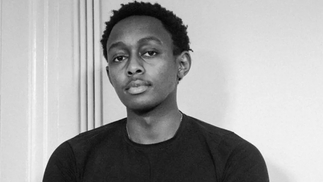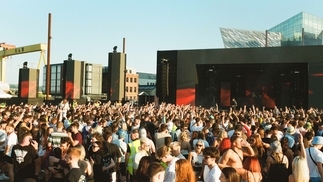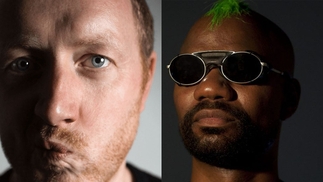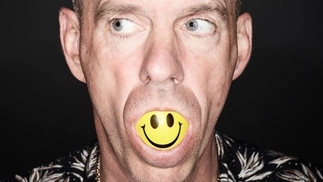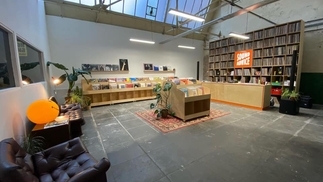DJ Mag Podcast 93: Timmy Stewart
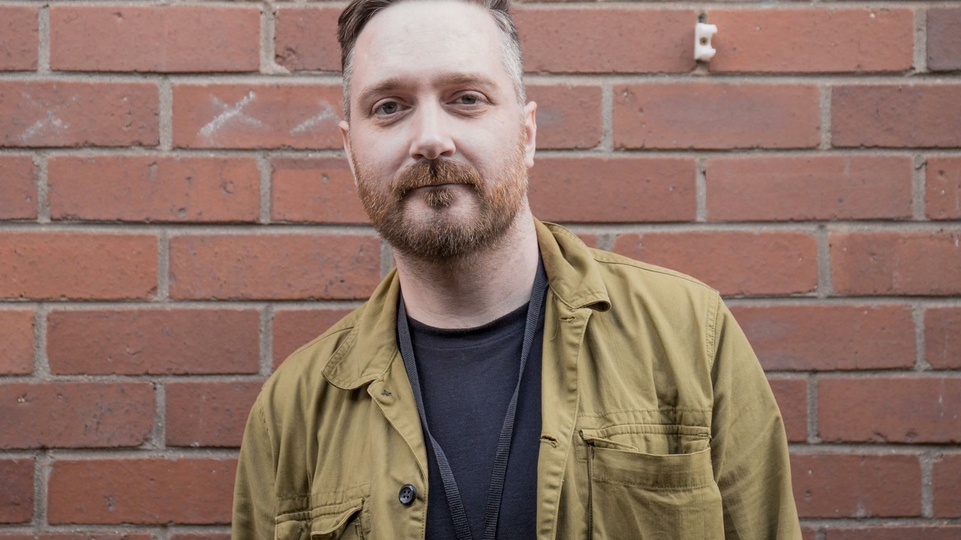
Belfast legend and The Night Institute resident Timmy Stewart (T-Bone, Black Bones) steps up with a mix of eclectic rhythm, supercharged industrial flare and timeless organic groove. Ahead of his appearance at AVA Festival & Conference, we catch up with the Northern Irish institution to track his course in the scene's evolution from the '90s underground to its current whirlwind reputation...
Northern Ireland’s clubbing scene has quietly been of one of Europe’s most dedicated and prolific of the past two decades. As some of the scene’s key players discussed in our recent feature on why it’s one of the best places in the world to go clubbing, there is a unique energy, unity and DIY spirit in this community that has seen it catapulted it from being a bastion of the underground to an internationally celebrated hub of incomparable parties.
Few DJs/producers have been as crucial to that evolution as Timmy Stewart. The longstanding resident DJ at Belfast’s The Night Institute and producer under pseudonyms T-Bone and Black Bones as well as his own name has been embedded in the scene since the ‘90s. Having played one of his very first gigs in 1994, aged 19, in front of thousands of attendees in Kelly’s nightclub Portrush supporting none other than one Carl Cox, to say Stewart was thrown right in at the deep end would be something of an understatement. From there, he went on to land a residency at David Holmes and Iain McCready’s influential Art College nights and ran unmissable afterparties above a taxi depot. Since, things have barely slowed once for the DJ, so ahead of his appearance at Belfast’s AVA Festival and Conference on 1st and 2nd June, we thought it as good a time as any to catch up with him...
“That whole period was a very influential time for a bunch of us,” he tells DJ Mag of the early days of Art College’s parties. “That includes Phil Kieran, Nez (Computer Controlled), Brian Morrison (Brian Not Brian), Gary Irwin (The Vendetta Suite) myself and more. The attention to detail at those parties was incredible, that sound system is still one of the best I’ve played on to this day.
“The nights were proper experiences; sonically, visually and the layout of the Conor Hall, balcony and a joining rooms lent itself amazingly well to the atmosphere. The artwork doesn’t even look that basic considering how long ago the nights took place, which is testament to just how ahead of the curve the group of individuals behind those parties were.”
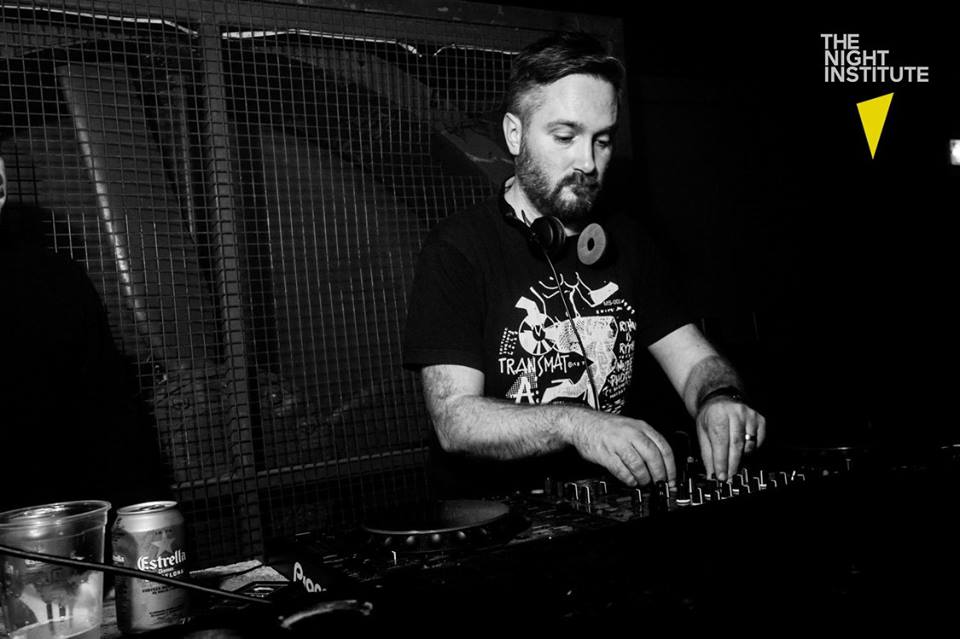
It was at those nights that Stewart learned the intricacies of what it was to be a DJ and how a well-curated party is supposed to run with a particular, invaluable course. “The most lasting thing I took from that time was how Iain McCready & David Holmes programmed the music around the room filling up,” he explains.
“Their nights in particular had a definite start, middle and closing feel. You’d arrive to this dimly lit, smoke filled room with pulsing low-level dub heavy slower BPM music and by the end of the night be fist pumping to panel beating techno in a packed sweat drenched crowd amidst a blaze of light projections and wind machines. It gives me butterflies just thinking about how those nights unfolded around us.”
“As a DJ it made me realise you should have a certain range to your abilities and tailor them and your selections,” he adds. “Tension/sustain to what’s happening right in front of you. Stand out nights from memory are Scott Hardkiss (RIP), The Dust Bros live (Chemical Brothers), Twitch & Brainstorm, Andrew Weatherall, Bandulu Live, Stuart McMillan, The Advent live, Claude Young, Neil Landstrumm, Space DJz, Christian Vogel but the residents had a real knack of bringing their A game to be honest. I learned a lot from them.”
"Those nights created a real escapism from the backdrop of the time and contributed to lifelong friendships and bonds"
In the late ‘90s, Northern Ireland’s musical and artistic communities were being built in the shadow of The Troubles. Upon a backdrop of civil war and political turmoil, and the determination and DIY spirit that coursed through the musical landscape was something that was reflected in the club scene Stewart found himself within. When it came to the breaking down of social barriers and tensions in the city, the influence of that spirit cannot be understated.
“It was all very exciting and ground-breaking music and culture wise then,” he says. “Coupled with removing certain social barriers. I was very lucky to have been raised in a non-biased environment but I do remember as a teenager living in east Belfast prior to that era I didn’t really have any catholic friends my own age. That in itself shows the natural segregation that was happening in the city and suburbs. For some, those nights created a real escapism from the backdrop of the time and contributed to lifelong friendships and bonds. People got married and have kids together now from meeting there. It was a powerful landscape changing stuff, no doubt about that.”
Off the back of the Art College residency and the taxi depot afterparties, Stewart and fellow producer Glenn McCartney were given the chance to use David Holmes’ Exploding Plastic Studio at a slightly discounted cost, working under the revered producer and engineer’s mentoring eye.
“That was the basis for understanding about writing and arranging the music that we loved to play out,” Stewart says. “Glenn and I released our first efforts on the EPI & Nice N Nasty labels then started saving for and collecting hardware, eventually building our own studio in Glenn’s Mum’s attic.”
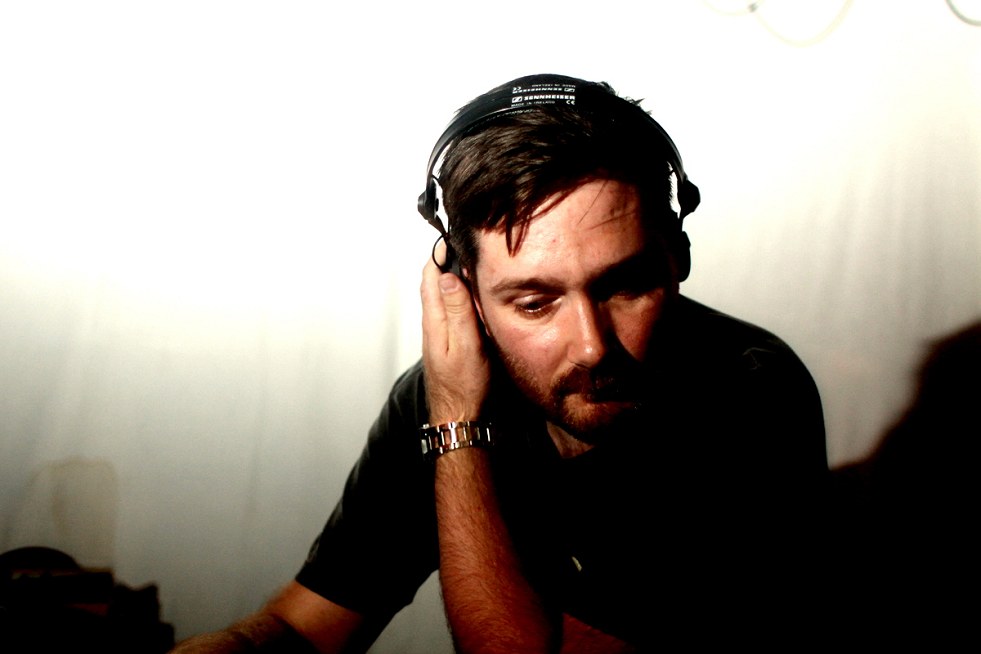
A string of 12” releases soon followed on Manchester’s Paper Recordings, Neville Watson’s Mighty Atom label and numerous US labels. They helped set up their own imprint in London by the name of Product Deluxe, and were given the shot to remix Andrew Weatherall’s 2 Lone Swordsmen project with a mix of ‘Baby Wants To Ride’ on Bill Brewster’s vinyl only imprint.
“I guess during this whole time we were honing our production skills and learning as much as possible,” he says. “It’s been a constant since then: Vinyl to digital releases and recently back to vinyl again. I sometimes lose track of the number of projects, pseudonyms, releases etc. I enjoy and get caught up in the ongoing creative outlet and natural evolving of things.”
It must be remarkable, in that case, for Stewart to see how Belfast and NI on the whole has evolved in the past few years to become one of the most exciting places in the world to party and with DJs travelling the world with stories of incredible energy at parties like Jika! Jika!, The Night Institute, Twitch and at festivals like AVA and Celtronic.
“It’s been a bit special to say the least,” he says. “I think we have always been a very creative place with a very small population and fairly limited reach. The introduction of the internet and the expat success stories that bring the spotlight back home have provided a real catalyst. AVA is incredibly important. It’s cemented everything and given a community an international platform. Sarah, her team and also Matt and Andy have done a lot to raise awareness of what goes on here. I respect that a lot, as a few in the past have adopted a more solitary approach.”
"It’s ridiculous just how many people in the city are doing interesting stuff at present!”
But of course, the scene is not without its problems...
“The usual stuff holds us back to be honest,” he admits. “Outdated politics, brutal licensing laws that feed the brain drain and cause a lack of outside investment. It’s the kind of stuff we have no control over and has always been there, so we just get on with it regardless. Everything else is as good as it gets at the minute in my opinion.”
Who are some of the emerging DJs and producers from the scene that we should be getting to know?
“Outside of the household names, I’m liking what I’m hearing from The Vendetta Suite, Bobby Analog, Mount Palomar, Cromby, Embezzlement Society, Tetsu, BTU, Batara, Dewar, Platinum Channel, Carlton Doom, Jordan, Gibsun & Mr Mur. I’m sure I’ve forgotten some but it’s ridiculous just how many people in the city are doing interesting stuff at present!”
As for himself, Stewart is showing no signs of stopping. His Black Bones project will be releasing a new 12” in June and is also working on a new record for label Touch Sensitive. The Night Institute itself has been thriving since it moved venue to an “intimate bass heavy bunker” in March this year, giving him and his fellow resident and one of the community’s leading lights, Jordan, a whole new space to play with.

“We’ve had some ridiculous nights in there so far this year,” he says “By ourselves, local friends and with guests such as Tom Trago and Maurice Fulton who did an all night long Sunday night set on the bank holiday a few weeks back. That felt very special. He even went online voicing how much of a good time he’d had!”
“To be honest we only do about five or six international guest bookings in a year,” he adds. “So we strive to make those standouts. It’s a resident’s weekly for the most part and we like to support the people in Ireland who interest us and seem to put their own necks on the line. We celebrate three years of weekly Saturdays this July, I’m actually really proud of that milestone.”
As he should be. For his DJ Mag Podcast mix, Stewart pays homage to the sounds of the ‘80s that made him fall in love with electronic music, plus the new wave of artists who channel that same spirit in their productions now.
“As much as I love the house and techno I discovered in the ‘90s, the electro and breakbeat rhythms [of the ’80s] are fairly ingrained,” he says. “I’m loving the new breed of house producers who marry this, so this mix has a lot of that element plus some old records that were so ahead of the game they seemed to fit with ease alongside the newer bits.”
And what should we do while listening to it?
“I personally love cooking or driving while listening to music, so either of those. That or get naked, you generally always have more fun with your clothes off, right? Just watch for hot splashes if you cook in the buff!”
Lead image credit: Nathan Moore
